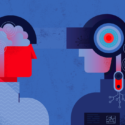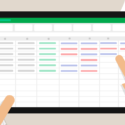
Set boundaries, take control and disconnect, says Marsha Egan
Technology is zooming. Email is instantaneous. Information is exploding. Stop the world, I need to get off! Or at least turn it off…
The advances in digital technology are truly amazing. We can check email at 2:00 AM, receive phone calls while traveling wherever we are, and hold real time video meetings with clients halfway across the globe. It seems as if everyday a new device or software program hits the market designed to make our lives faster, easier, and more connected at all times. However, just because technology gives us the capability to do something, doesn’t mean we should.
We all know that we can’t work 24/7. Hey, we’ve gotta sleep! But more than that, having a work/life balance is proven to make us more effective at work. We know this is true; but how many people actually follow through?
The big challenge for us is that there is enough work, information, and business “stuff” to occupy our every waking minute. It’s easy to become overwhelmed. To make your life as simple as possible, set some guidelines for what you do when you work and what you won’t do when you’re not at work. By doing this you’ll feel more engaged on the job, be more productive, and feel less inclined to be constantly connected during your free time. While productivity is a subject that could fill tomes, use these three efficiency hints to make the most of the time you choose to work.
1. Check your email no more than 5 times during the work day
Shut it down, and only open it in the morning, mid-morning, after lunch, mid-afternoon, and near the end of your workday. You’ll survive, and you will be amazed at how much more quality work you’ll get done because you’ve minimized the interruptions that occur with email dings and flashes. Minimizing them will help you find time you never knew you’d lost.
2. Set your objectives in weekly “chunks”
At the beginning, or end of your week, set objectives for your major goals in the coming week. Keep them present – in a place that you review regularly. This broadened view can help you see your priorities which funnel into your daily plans.
3. Plan your day and stick to it
Use one regular time each day to assess everything on your plate, set priorities, and estimate the time it will take for each. This planning must include those tasks delivered by email – email is not a separate activity. Of course there may be a high priority interruption every now and then, but set your daily plan and stick to it. All this electronica is distracting and pulling us from our plans, tempting us with low priority items that just scream to be cleared from the inbox.
We call this “setting boundaries.” This is when we take control and become intentional about disconnecting from our electronic tethers.
So how and when do we turn it off? There is no set formula that works; we all have unique situations and need to discover which boundaries work best. However, here are some thoughts to help you build your own system:
1. Boundaries and routines go together
The more you can make your electronic boundaries part of your routine, the better. An example might be to turn Smartphone off the minute you walk in the door of your home. This is a signal for you to shift gears from work to parent and spouse.
2. Turn the electronica off in large intervals
Stop checking your PDA every time you have a break. Give yourself intentional relief from thinking about work. Remember that many times when you check that email, such as in the evening, there is nothing you can do about it at that moment (other than stress about it!) View it when you can act on it.
3. Share your boundaries
Communicating the boundaries you’ve chosen will help others honor them. Remember, there is nothing wrong with setting boundaries; you’ll be respected because you’re honoring your own life/work balance.
Productivity at work combined with healthy electronic boundaries will allow you to focus on the important stuff in life. Your family will thank you and so will your boss when the quality of your work improves! By spending a bit more time disconnected you’ll be amazed at how much more efficiently you work when you are connected. Try these methods out for just one week and I guarantee you won’t turn back!












